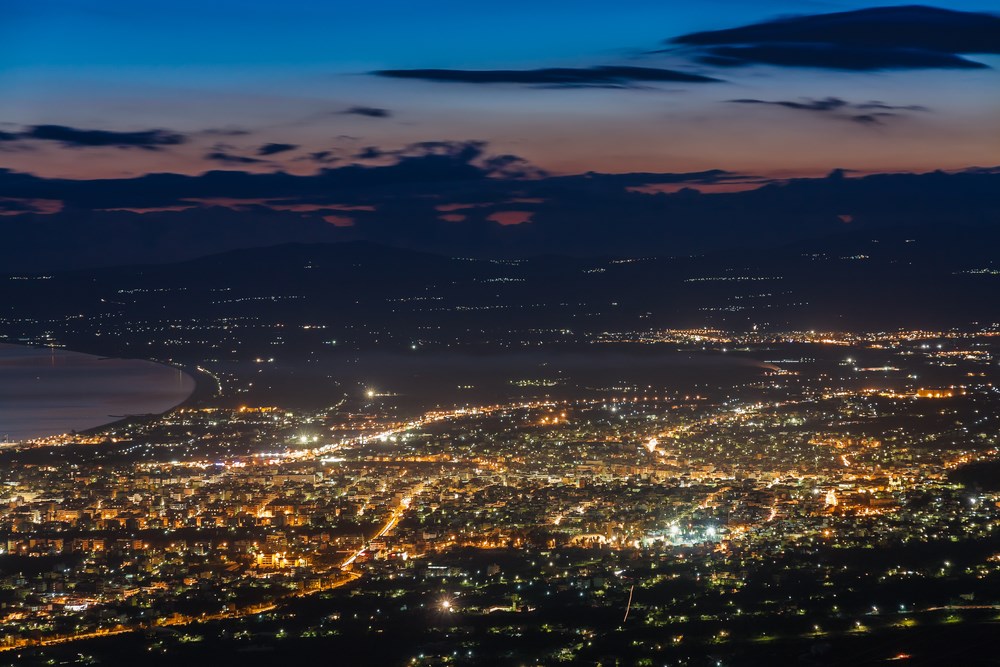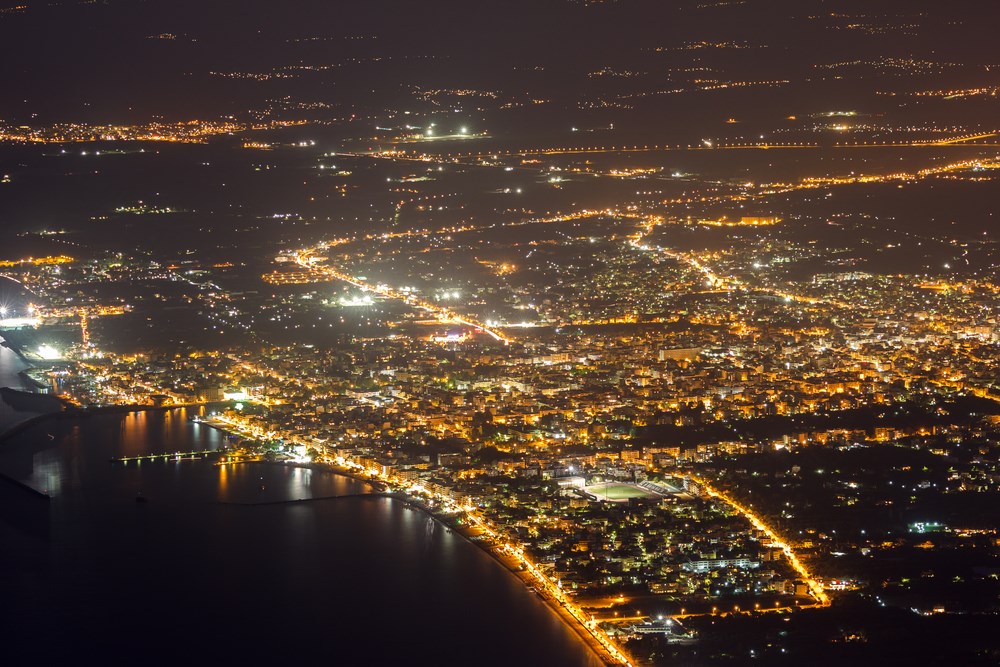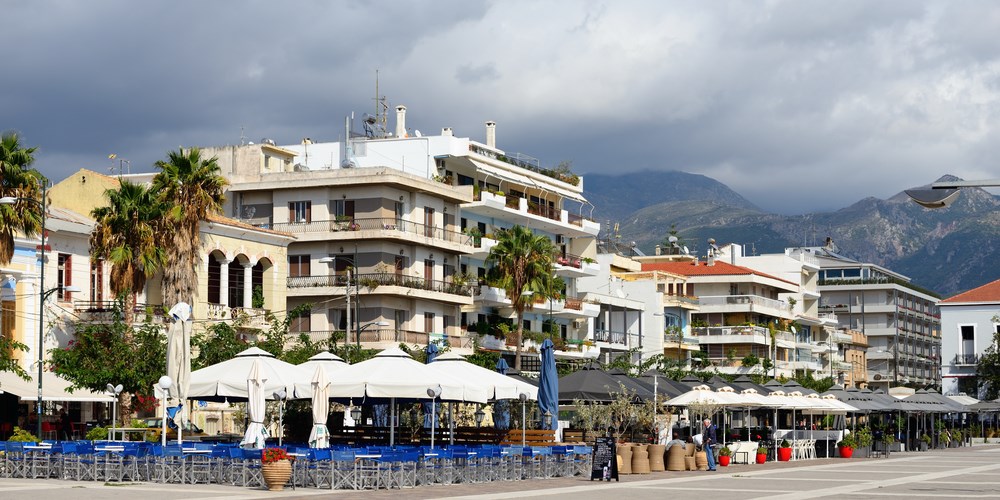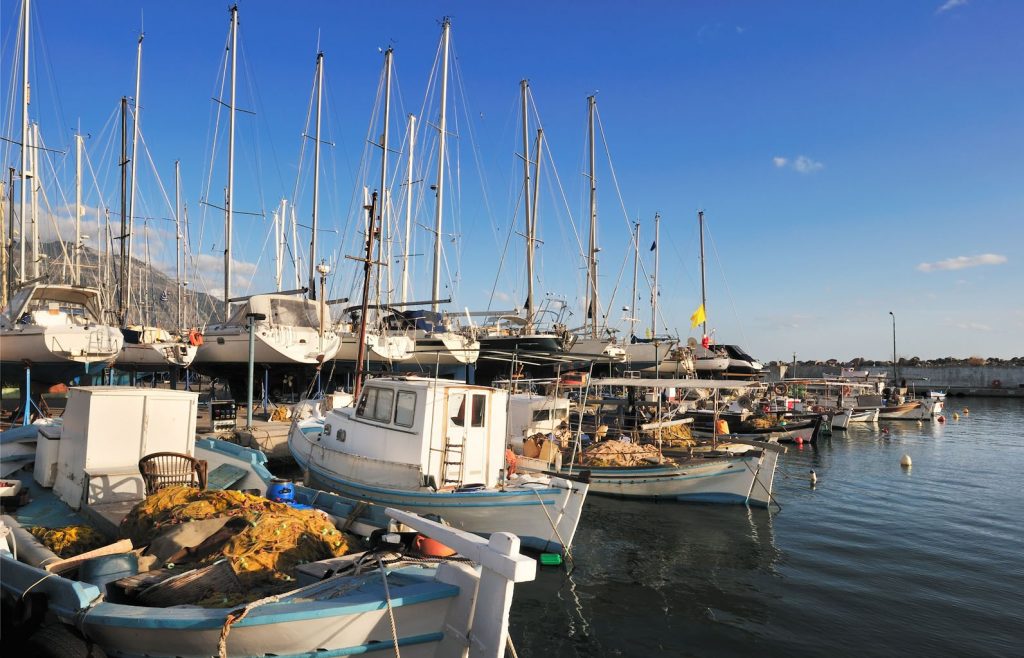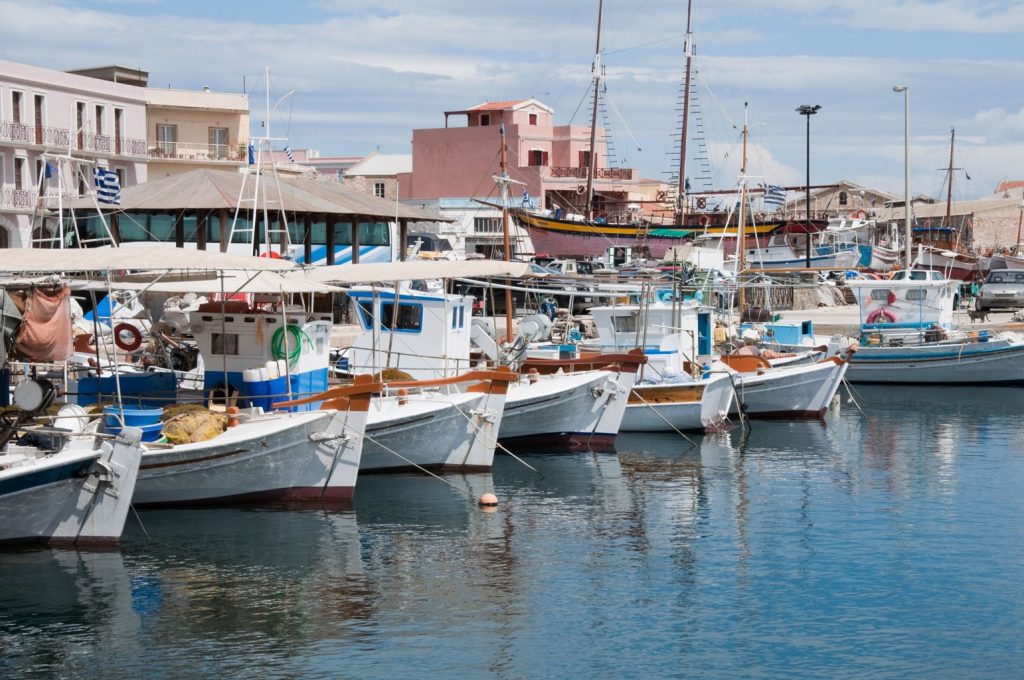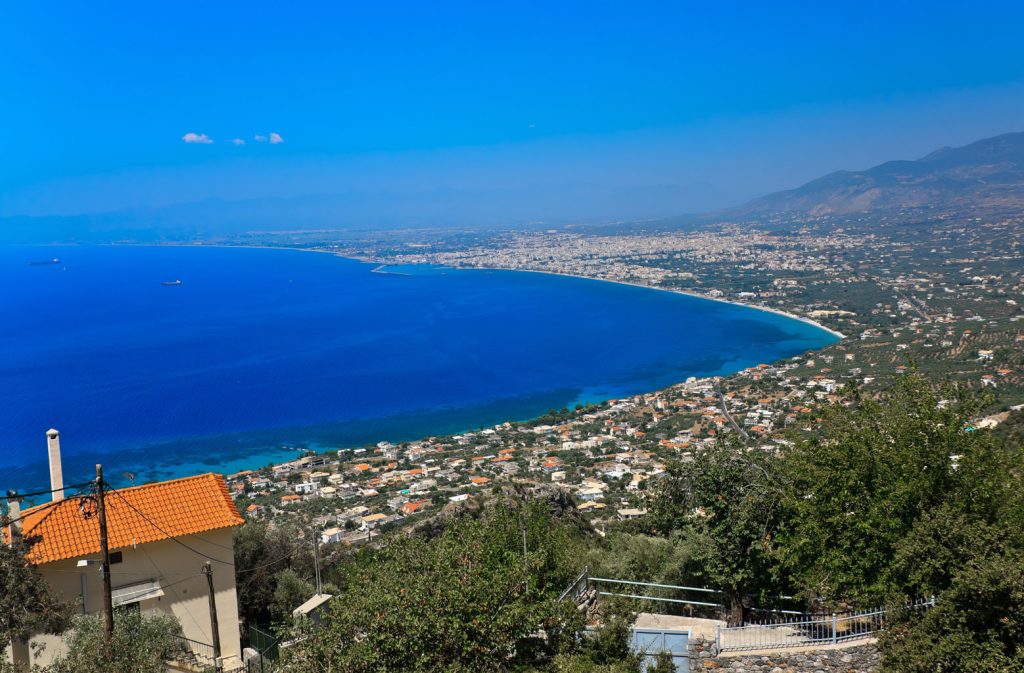Kalamata
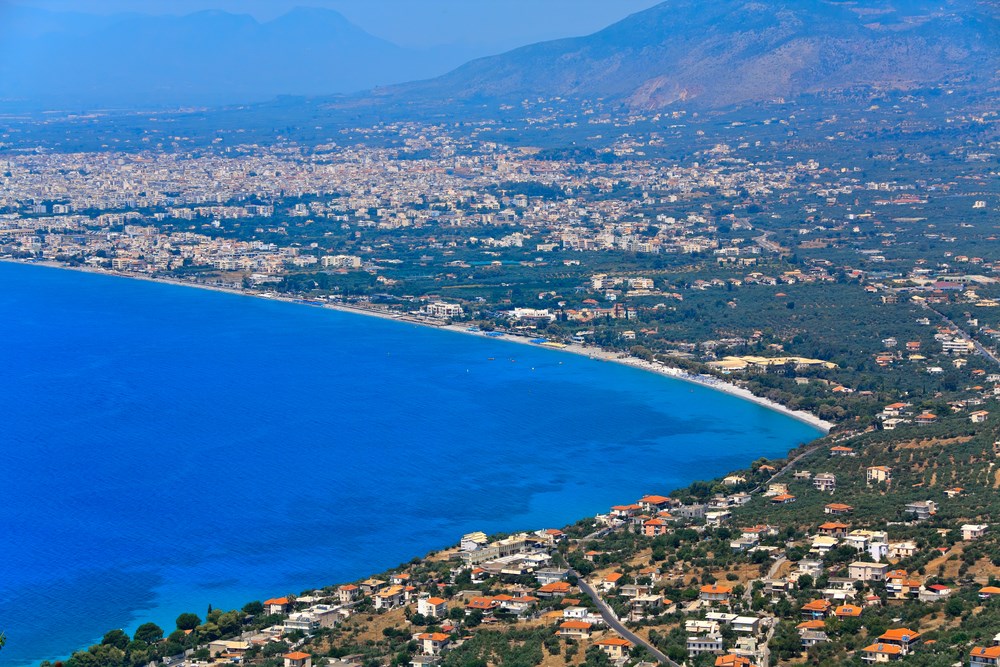
Kalamata is the capital of Messinia , the second biggest city in the Peloponnese, after Patra. It is built at the foot of Mountain Kalathi (ridge of Taygetos), in the heart of Messinian Bay. It is 223 km away from Athens (just 2.5 hours taking the modern highway), 215 km away from Patra and 715 km away from Thessaloniki.
It is a modern city with public services, university departments, hospital and international airport. It has a vivid nightlife during winter and summer, in the historic center and the beach.
Important national and international events are organized every year in the city. Papaflessia (athletics) and Kalamata Cup (rhythmic gymnastics), stand out among sporting events and the International Dance Festival is the most important among cultural events. Since 2012 “Carnival of Kalamata” is organized on Halloween. The city celebrates on February 2nd, Ypapanti of Christ, while on March 23rd they celebrate the liberation of Kalamata from the Turks.
History
The history of Kalamata is lost in the time. Starting at Homer, where he mentions Farres, an ancient city built on the location of the castle of the city. Kalamata has limited importance in the ancient period lying under laconic sovereignty .
It obtains glamour after the Fourth Crusade (1204 AD ), when it passed into the hands of the Franks.
In 1459 it was occupied by Turks and they interchanged the hegemony of the city with the Venetians until 1715 when it was occupied permanently by Turks until 1821 when it was finally released.
The highlight of the long history of the city is the liberation by the Turks on 23 March 1821. On that day, Kolokotronis, Nikitas, Petrobeis, Mavromichalis, Papaflessas and others entered the city as liberators.
They participated in solemn doxology that took place at the Church of Agioi Apostoloi, the revolutionary flag was blessed and the Revolution of 1821 started from here. The Messenian Senate prepares two important texts in Kalamata, “Warning to European Courts” and “Manifesto”, addressed to the Americans.
In the late 19th century the port of Kalamata was built and operates until today, and the city presents considerable growth and acne.
In September 1986 Kalamata was hit by two powerful earthquakes that unfortunately provoked victims and caused extensive damage. Nevertheless, the city was quickly reconstructed and is now a modern Greek seaside town that retains its historic identity on the streets and in every aspect of life.

